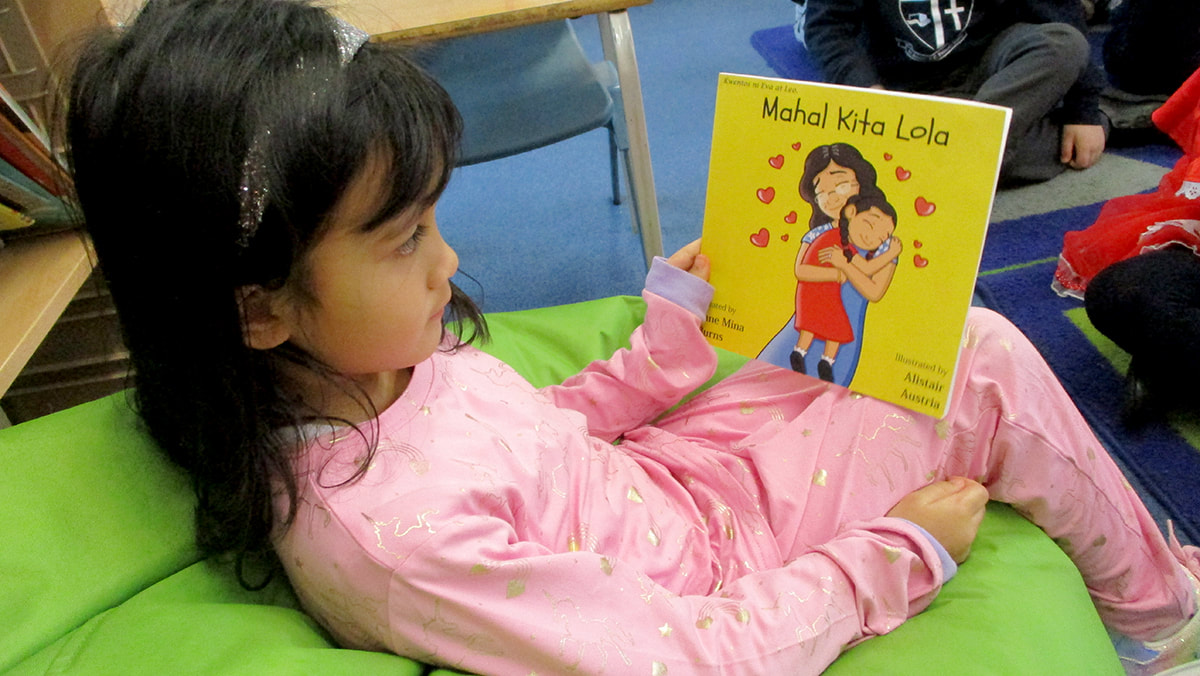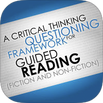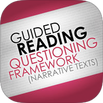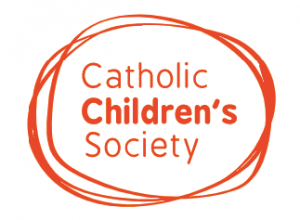English at St. Agnes Primary School
Coordinator: Mr Declan Dunford-Crozier
It is our intention that learning is relevant to our children through our commitment to a diverse English curriculum. We have carefully chosen key texts in English and reading lessons as well as class novel choices.
In English, we are clear that Intent is the knowledge and skills the children acquire in our curriculum, which builds towards clearly defined end points.
We understand the importance of the Early Years for building the reading and writing foundations for the future years. Our educational programme ensures that our children:
Implementation
English is planned for following the EYFS Framework, the THE Partnership systematic synthetic phonics programme and the KS1 and KS2 National Curriculum for English. Learning in English has built progression including revisiting and practising skills previously learnt. It is also supplemented by high-quality selected texts which also link to foundation subjects thereby greater opportunities to deepen knowledge.
Phonics
The systematic teaching of phonics has a high priority through Foundation State and Key Stage 1. Phonics is taught daily to all children in Foundation Stage, Year 1 and those in Year 2 who have not passed their phonics screening. Staff systematically teach learners the relationship between sounds and the written spelling patterns, or graphemes, which represents them. Phonics is delivered in small groups based on the stage a child is at. Throughout the programme formative and summative assessment is built in to monitor progress within each phase to inform next steps within the programme. Intervention is planned for those children who are working below expected levels of progress. Pupils are given phonically decodable books which closely match the phase of phonics that they are currently working within.
Reading
Reading forms the core of our curriculum. All children read with a member of staff 1:1 and are read to so that they develop a love of Reading. Books are selected by teachers with the knowledge of how they link to other areas of the curriculum. Whole class reading takes place in class through a range of subjects – not just English. Shared and guided reading sessions model and teach explicit reading strategies. All children have texts read to them in all year groups. All children are expected to read at home and take home `home’ reading books. This is accompanied by a yellow reading journey which acts as a tool for communication between home and school.
In Early Years, children are supported in their phonics acquisition by phonically decodable book at the level they are studying. Once children have finished Phase 5 (by the end of Year One) and are fully secure with the phase 5 graphemes they move from decodable books to real books. With that move, their progress in reading continues to be monitored by adults in the setting through 1:1 reading, class reading, shared and guided reading. From Year Two onwards, Accelerated Reader is introduced to children (if appropriate). Accelerated Reader is a computer program that helps teachers manage and monitor children’s independent reading practice.
Language
The promotion of a language rich curriculum is essential to the successful acquisition across the curriculum. The development of speech and language is identified as one of the most important parts of our school’s early years curriculum. The promotion and use of an accurate and rich cross curricular vocabulary throughout school is planned in all subjects. This is evident in all learning areas. The promotion and implementation of tiered language across the curriculum provides the tools for children to make links across the subjects so that they know more, remember more and understand more. Pupils are given a wide range of opportunities to use and develop their Speaking and Listening skills to help them with the writing process across all areas of the curriculum. All children write daily. Teachers plan writing linked to quality reading texts and using termly moderation with Tower Hamlets schools using end of year writing assessments jointly agreed by English Co-ordinators in the Borough track coverage, progress and establish next steps. Opportunities for children to apply their writing are planned and linked to the wider curriculum. Children are taught age related spellings exploring key spelling rules and patterns and are tested weekly on these spellings. Handwriting follows the conventions of letter join. This cursive style in Reception is linked to phonics where appropriate e.g. digraphs, ch, sh, etc. By Year One, pupils are asked to ensure that the relevant letters have exit strokes and by the third term of Year Two, all joins are established and reinforced. Handwriting continues in KS2 if necessary and if children struggle they are able to access the speech-to-text on Microsoft Word through the “Dictate” feature.
Impact
Children will make at least good progress in Reading, Writing and Speaking and Listening from their last point of statutory assessment or from their starting points
Children will use their English knowledge and skills, in all curriculum areas, to enable them to know more, remember more and understand more.
Children will have a love of Reading and make at least good progress in Reading from their last point of statutory assessment or from their starting point in EYFS.
Children will use their Reading skills as a key tool in helping them to learn, and as a result, know more, remember more and understand more.
Children will be able to produce written work in all areas of the curriculum of a similar standard which evidence good progress from their last point of statutory assessment or their starting point in EYFS.
Monitoring of English lessons design shows strong evidence of staff subject knowledge and teacher modelling of writing.
If you were to walk into reading lessons at St Agnes, you would see:
If you were to walk into writing lessons at St Agnes, you would see:
In English, we are clear that Intent is the knowledge and skills the children acquire in our curriculum, which builds towards clearly defined end points.
We understand the importance of the Early Years for building the reading and writing foundations for the future years. Our educational programme ensures that our children:
- quickly acquire Word Reading skills through a consistent Systematic, Synthetic Phonics programme
- develop their spoken language through back and forth interactions and modelling of rich and varied vocabulary
- have opportunities to have back-and-forth interactions from an early age to form the foundations for language and cognitive development
- have exposure to a language-rich environment
- have opportunities to use and embed new words in a range of contexts
- develop a life-long love of reading
- learn and enjoy a range of language through stories, rhymes, poems and songs
- read easily, fluently and with good understanding
- develop the habit of reading widely and often, for both pleasure and information
- acquire a wide vocabulary, an understanding of grammar and knowledge of linguistic conventions for reading, writing and spoken language
- appreciate our rich and varied literary heritage
- write clearly, accurately and coherently, adapting their language and style in and for a range of contexts, purposes and audiences
- use discussion in order to learn; they should be able to elaborate and explain clearly their understanding and ideas
- are competent in the arts of speaking and listening, making formal presentations, demonstrating to others and participating in class discussion.
- Excellent phonic knowledge and skills.
- Fluency and accuracy in reading across a wide range of contexts throughout the curriculum.
- Knowledge of an extensive and rich vocabulary.
- Excellent comprehension of a range of texts.
- The motivation to read for both study and for pleasure.
- Extensive knowledge through having read a rich and varied range of texts.
- The ability to write fluently and with interesting detail on a number of topics throughout the curriculum.
- A vivid imagination which makes readers engage with and enjoy their writing.
- A highly developed vocabulary and an excellent knowledge of writing techniques to extend precision in details and/or description.
- Well-organised and structured writing, which includes a variety of sentence structures.
- Excellent transcription skills that ensure their writing is well presented and punctuated, spelled correctly and neat.
- A love of writing and an appreciation of its educational, cultural and entertainment values.
Implementation
English is planned for following the EYFS Framework, the THE Partnership systematic synthetic phonics programme and the KS1 and KS2 National Curriculum for English. Learning in English has built progression including revisiting and practising skills previously learnt. It is also supplemented by high-quality selected texts which also link to foundation subjects thereby greater opportunities to deepen knowledge.
Phonics
The systematic teaching of phonics has a high priority through Foundation State and Key Stage 1. Phonics is taught daily to all children in Foundation Stage, Year 1 and those in Year 2 who have not passed their phonics screening. Staff systematically teach learners the relationship between sounds and the written spelling patterns, or graphemes, which represents them. Phonics is delivered in small groups based on the stage a child is at. Throughout the programme formative and summative assessment is built in to monitor progress within each phase to inform next steps within the programme. Intervention is planned for those children who are working below expected levels of progress. Pupils are given phonically decodable books which closely match the phase of phonics that they are currently working within.
Reading
Reading forms the core of our curriculum. All children read with a member of staff 1:1 and are read to so that they develop a love of Reading. Books are selected by teachers with the knowledge of how they link to other areas of the curriculum. Whole class reading takes place in class through a range of subjects – not just English. Shared and guided reading sessions model and teach explicit reading strategies. All children have texts read to them in all year groups. All children are expected to read at home and take home `home’ reading books. This is accompanied by a yellow reading journey which acts as a tool for communication between home and school.
In Early Years, children are supported in their phonics acquisition by phonically decodable book at the level they are studying. Once children have finished Phase 5 (by the end of Year One) and are fully secure with the phase 5 graphemes they move from decodable books to real books. With that move, their progress in reading continues to be monitored by adults in the setting through 1:1 reading, class reading, shared and guided reading. From Year Two onwards, Accelerated Reader is introduced to children (if appropriate). Accelerated Reader is a computer program that helps teachers manage and monitor children’s independent reading practice.
Language
The promotion of a language rich curriculum is essential to the successful acquisition across the curriculum. The development of speech and language is identified as one of the most important parts of our school’s early years curriculum. The promotion and use of an accurate and rich cross curricular vocabulary throughout school is planned in all subjects. This is evident in all learning areas. The promotion and implementation of tiered language across the curriculum provides the tools for children to make links across the subjects so that they know more, remember more and understand more. Pupils are given a wide range of opportunities to use and develop their Speaking and Listening skills to help them with the writing process across all areas of the curriculum. All children write daily. Teachers plan writing linked to quality reading texts and using termly moderation with Tower Hamlets schools using end of year writing assessments jointly agreed by English Co-ordinators in the Borough track coverage, progress and establish next steps. Opportunities for children to apply their writing are planned and linked to the wider curriculum. Children are taught age related spellings exploring key spelling rules and patterns and are tested weekly on these spellings. Handwriting follows the conventions of letter join. This cursive style in Reception is linked to phonics where appropriate e.g. digraphs, ch, sh, etc. By Year One, pupils are asked to ensure that the relevant letters have exit strokes and by the third term of Year Two, all joins are established and reinforced. Handwriting continues in KS2 if necessary and if children struggle they are able to access the speech-to-text on Microsoft Word through the “Dictate” feature.
Impact
Children will make at least good progress in Reading, Writing and Speaking and Listening from their last point of statutory assessment or from their starting points
Children will use their English knowledge and skills, in all curriculum areas, to enable them to know more, remember more and understand more.
Children will have a love of Reading and make at least good progress in Reading from their last point of statutory assessment or from their starting point in EYFS.
Children will use their Reading skills as a key tool in helping them to learn, and as a result, know more, remember more and understand more.
Children will be able to produce written work in all areas of the curriculum of a similar standard which evidence good progress from their last point of statutory assessment or their starting point in EYFS.
Monitoring of English lessons design shows strong evidence of staff subject knowledge and teacher modelling of writing.
- All learning is matched appropriately to the age group being taught.
- Children are prepared year on year for the next step in their writing and reading education.
- Implementation of whole class reading sessions have had a positive impact on progress and engagement.
If you were to walk into reading lessons at St Agnes, you would see:
- High-quality Systematic Synthetic Phonics being taught with complete fidelity to The Partnership Phonics Programme
- Children learning to read using only fully decodable texts.
- Children in Reception being read to in a highly engaging manner, learning nursery rhymes, songs, poems and Bible stories
- Across the school, teachers reading high-quality texts to children, modelling excellent fluency, grammar and developing engagement
- Consistency in Whole Class Reading in Key Stage 2 with the use of high-quality texts or text extracts
- Vocabulary being prioritised and taught in a consistent manner across the curriculum
If you were to walk into writing lessons at St Agnes, you would see:
- High-quality texts being used
- Working Walls to support learning
- Learners engaged in meaningful activities – drama, debate, discussion, practical skills’ practice
- Opportunities for learners to apply new skills through writing time
- Consistent teacher modelling across the school
- Many examples of tier 2 and 3 vocabulary being used
- Cross curricular writing that links ideas and uses knowledge gained outside of English lessons
Download our English Curriculum Overview below
| St Agnes English Curriculum 2023-2024.pdf |
Download our Early Reading Policy below along with ways to help your child's reading at home
| St Agnes Early Reading Policy 2023.pdf |
|
| ||||||||
Please have a look at the information on building vocabulary taken from The School Run website here.











